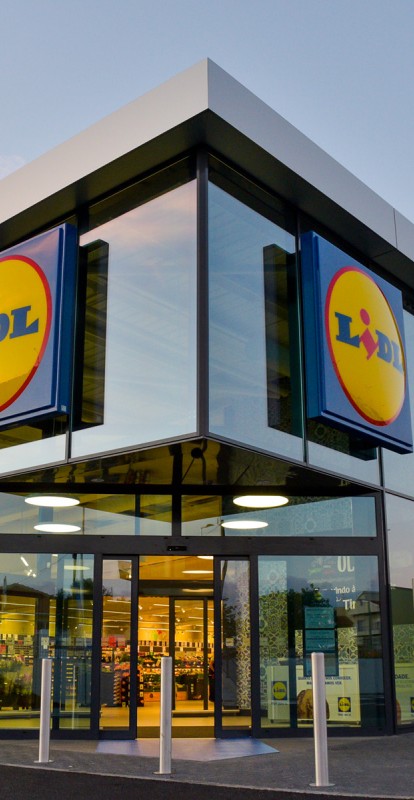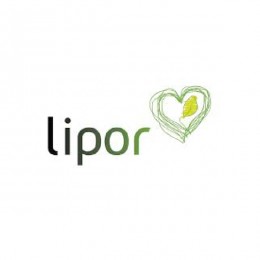Business
Lidl
As a multinational, Lidl focuses on a responsible business model and not just a financial objective. Simplicity and customer focus, responsible use of resources and respectful treatment of customers, employees and business partners are what guide their daily actions.
Lidl publicly assumes its concern with environmental sustainability and reducing its carbon footprint. What results do you expect to obtain from this adopted strategy?
Sustainability is part of Lidl's DNA and is fully experienced through the adoption of good economic, environmental and social practices throughout our value chain, focusing on the policy of offering quality at the best price. At Lidl, we are aware of our responsibility to society and the environment and, as one of the main retail chains operating in Portugal, we work daily to make our commercial activities as sustainable as possible, together with our suppliers, partners and collaborators. Our corporate responsibility strategy, “On the way to tomorrow”, is based on three principles of responsible and sustainable action: promoting sustainable lifestyles, protecting the planet, and supporting local communities. Based on these principles, we are continuously improving our business to create value for our society, business partners and for our employees.
At Lidl there is an integrated bet, with the implementation of measures in the most different operational areas, in the value propositions to the customer and in the programs to promote sustainability with social impact.
The investment in reducing the carbon footprint has been a structural concern for Lidl Portugal and in 2019, we made the transition to 100% green electricity, from renewable sources, in all our buildings. Whenever possible, we invest in the installation of photovoltaic panels in our stores, warehouses and headquarters, avoiding the release of CO2 as a result of the production of renewable electricity.
In order to promote mobility with a low environmental impact and also support the consumer in this transition, involving various institutional agents and also families in reducing the carbon footprint, in June 2020 - already in pandemic times - we assumed a new commitment: the promotion of electric mobility through the installation of a network of more than 40 charging stations for electric vehicles in our new or remodeled stores. By February of 2021, we made it possible to travel from North to South of the country with green energy. The chargers are multi-standard and fast charging, allowing an 80% battery recharge in just 30 minutes, combining concern with the planet and convenience, serving to democratize access to sustainability. In June of this year, we reinforced this premise, by committing to guarantee coverage in around 100 stores by the end of February of 2022. Institutionally supported by the Ministry of Environment and Climate Action, this commitment reinforces Lidl's concern to contribute for a more environmental friendly mobility, at a time when the country has been strengthening its commitment to achieve carbon neutrality by 2050.
Additionally, Lidl Portugal reinforces its commitment in this area, continuing its path towards protecting the planet, by announcing that we will reduce our greenhouse gas emissions by at least 70% at an operational level (scope 1 and 2), until 2030, compared to 2019. This reduction is based on the methodology of the Science Based Targets (SBTi) initiative, to which the Schwarz Group, to which Lidl belongs, joined in August of 2020. From 2022, Lidl Portugal, together with the other Lidl subsidiaries, will achieve climate neutrality in its operations (scopes 1 and 2), by reducing greenhouse gas emissions and compensating those that cannot be eliminated.
This commitment by Lidl Portugal is in line with the climate strategy defined at a transversal level by the Schawrz Group and assumed by Lidl at an international level. The company's international commitment aims to reduce its greenhouse gas emissions by 80% at an operational level (scopes 1 and 2), while the national commitment is slightly lower, as a result of measures already implemented in the last three years.
With regard to indirect emissions, which are generated in the value chain, our suppliers, responsible for 75% of product-related emissions (scope 3), must establish climate targets, according to the Science Based Targets (SBTi) methodology, up to 2026.
Operating in Portugal since 1995, do you consider that the current consumption habits of the Portuguese people are significantly different from those of 26 years ago?
There is no doubt that today we are witnessing different consumption habits in the Portuguese population as the result of a growing concern with healthy eating and more conscious choices. There is also a growing attention to the environmental and social impact of the products consumed, as well as the conduct of the companies that produce and distribute them. Consumers today have very varied needs, and that is why various consumption profiles coexist.
Organic products have been assuming a greater role in the Portuguese shopping basket which is an area in which we have invested and we already have more than 100 items in our stores, from yoghurts, quinoa, rice crackers and dark chocolate to milk, meat, oil, eggs, among others. This range has its quality guaranteed through the certification of production processes, whose advantages are the absence of pesticides and greater ecological and social sustainability.
Also in the choice of vegan and vegetarian products there has been a growing demand, so Lidl's offer has been increasing, always fulfilling its premise, focusing on the quality and freshness of the products and on the sustainability of the supply chain.
Regarding the environmental and social impact of the products consumed, Lidl invests in increasing the number of sustainable products – offering more than 600 certified products – making them more accessible to customers. As an example, we are committed to the sustainable cultivation of coffee, tea and cocoa with Fairtrade, Rainforest Alliance, Bio and UTZ seals, which assure consumers that products respect the best fair trade practices and respect the environment. We were also the first retail chain in Portugal to guarantee all its cod from sustainable fishing, with MSC certification, and we favor sustainable aquaculture products, with ASC certification.
We have a strict code of conduct and we are demanding in the selection of our suppliers, as it is a way of integrating our social and environmental responsibility into the first phase of the Lidl Value Chain, which is reflected in the trust that customers have in our brands and quality at the best price. Lidl's objective is to reinforce the commitment to continue working for a more sustainable country and planet, with the implementation of measures in the most different areas of its operation, but also helping consumers to make more sustainable choices.
What future sustainable initiatives can we expect from Lidl?
Lidl has analyzed, with its business partners, situations where it is possible to include more sustainable alternatives. Whenever possible, and when all the variables of a proposed measure are evaluated, in order to prove its total environmental contribution, the company joins forces to reinforce its strong commitment to sustainability.
As an example, with regard to plastic, Lidl bets on a holistic approach to the Reset Plastic strategy, at an international level - reduce, redesign, recycle, remove and innovate/educate - transversal to the business. It is important to emphasize that plastic fulfills important functions in food retail. In particular, in protecting food during transport, ensuring quality, durability and freshness. However, as more and more plastic is produced and only a very small amount is recycled, plastic waste has become a growing problem.
As a food retailer, we are aware of our responsibility, so Lidl has been making several sustainable commitments. As an example, it has been developing several innovations in terms of packaging, without jeopardizing the guarantee of quality and safety of the products. We reduced this material in numerous items such as banana from Madeira and meat from the Azores, which now have, respectively, 80% and 70% less plastic. We also reformulated the packaging of items such as W5 detergents, Naturis waters and Solevita juices, which is now made with recycled plastic. The packaging of Bio Milbona yogurts, on the other hand, allows the separation between plastic and cardboard and therefore increases their recyclability potential. In order to the customer make more responsible and informed choices, all products whose packaging contains either 30% recycled material, 10% less plastic in the packaging or 80% recyclable, are now identified with the “Eco-responsible Packaging” seal.
Since Sustainability is transversal to the entire Lidl value chain, we aim to continuously improve our business, creating value for our customers, partners and employees, with high social and environmental standards, based on an even more efficient management of our operations. We want to continue developing projects and adopting measures that have a positive impact on promoting sustainable lifestyles, supporting the community and protecting our planet, involving our stakeholders as facilitators of a more sustainable lifestyle, combining with convenience. We believe this is our way of tomorrow.
Lidl is one of the partners of Fibrenamics – University of Minho. What advantages do you find in this collaborative work?
Fibrenamics is undoubtedly a partner with whom we have great expectations and with whom we have been working together, precisely with regard to Plastic.
As a founding member of the Portuguese Pact for plastics, Lidl has committed to developing actions aimed at achieving a set of ambitious goals and objectives for 2025, which aims at a common goal, of a circular economy for plastics in Portugal, where plastics will never become waste. Fibrenamics has vehemently contributed to fulfill what we are committed to, helping not only in the exhaustive categorization of the different types of plastic and their specifications present in our operation; verifying the information provided by our suppliers on this subject, ensuring that it is correct; and finding how it will be fundamental the work of reducing, redesigning or innovating our private label packaging. This is an ongoing work that we have been developing, and which now counts on the contribution of Fibrenamics, recognized for its work of innovation and technological development in natural fibers and composites, designing and implementing integrated solutions.
Date: August/2021
Interviewed: Bruno Pereira, Purchasing Administrator, Lidl Portugal

